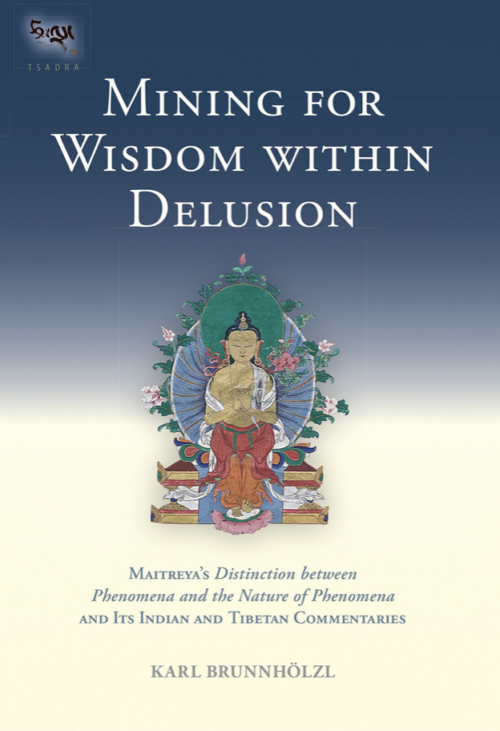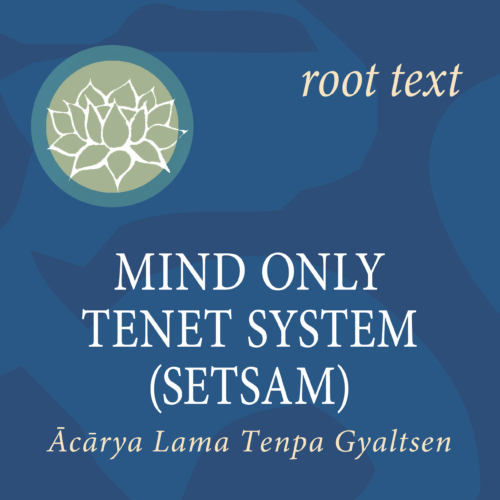- The hardcopy book is shipped from the US. International customers may wish to explore local booksellers, Shambala Publications, or Amazon to save on shipping cost.
-
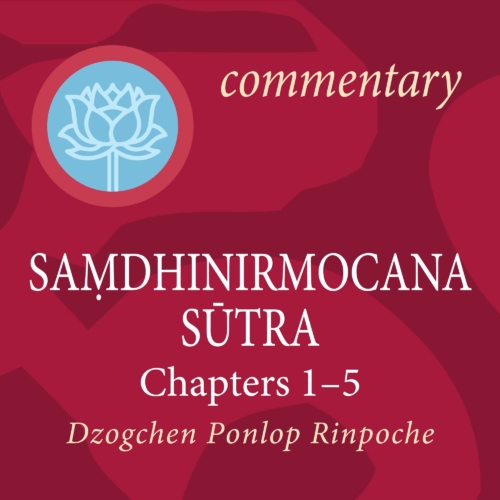
Commentary by Dzogchen Ponlop Rinpoche Oral translation by Mitra Tyler Dewar Root text translation by Gregory Forgues From the English translation by the Buddhavacana Translation Group, under the patronage and supervision of 84000: Translating the Words of the Buddha
A transcript of the oral commentary by Dzogchen Ponlop Rinpoche on the sūtra Unraveling the Intent [of the Buddha], a crucial sūtra for the Yogācāra tradition. In this text, Rinpoche presents with great clarity and detail the prologue and first five sūtra's chapters, which deal with the five defining characteristics of ultimate reality as well as the presentation of the all-base consciousness. -
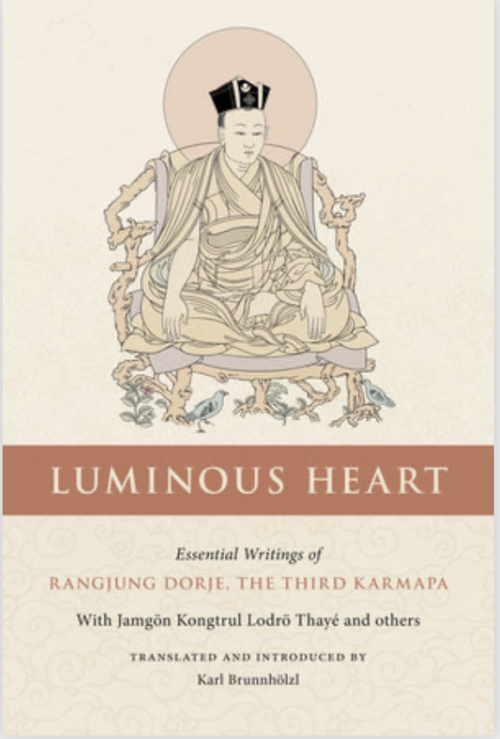
- Available as an eBook for Apple and Android devices.
- The hardcopy book is shipped from the US. International customers may wish to explore local booksellers, Shambala Publications, or Amazon to save on shipping cost.
Translator: Dr. Mitra Karl Brunnhölzl
An extraordinary collection of writings on buddha nature by the Third Karmapa Rangjung Dorje (1284-1339). The Third Karmapa Rangjung Dorje’s unique and balanced view synthesizes Yogācāra Madhyamaka and the classical teachings on buddha nature. His work focuses on the transition from ordinary deluded consciousness to enlightened wisdom, the characteristics of buddhahood, and a buddha’s enlightened activity. Included are commentaries by Jamgön Kongtrul Lodrö Tayé that supplement the view of the Third Karmapa on two fundamental treatises on buddha nature, emphasizing the luminous empty mind of buddha nature as presented by the great Indian masters Maitreya and Asaṅga. For those practicing the sutrayāna and the vajrayāna in the Kagyü tradition, what these texts describe can be transformed into living experience. -
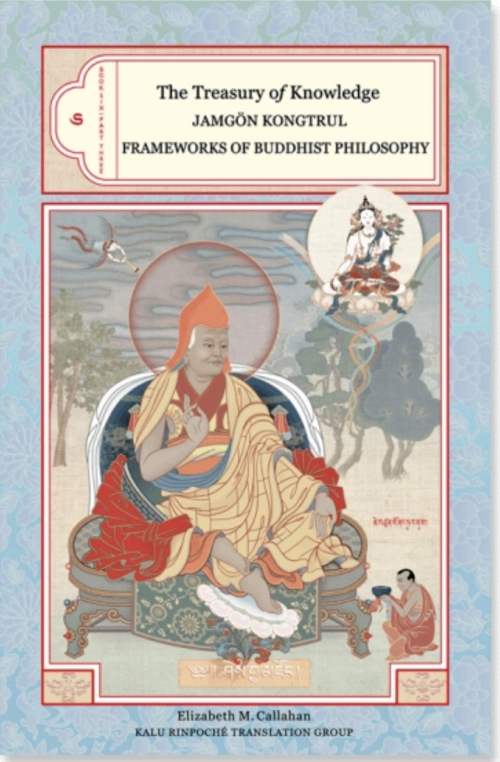
- The hardcopy book is shipped from the US. International customers may wish to explore local booksellers, Shambala Publications, or Amazon to save on shipping cost.
Author: Jamgön Kongtrul Lodrö Thayé Translator: Elizabeth M. Callahan
In Tibetan religious literature, Jamgön Kongtrül's Treasury of Knowledge in ten books stands out as a unique, encyclopedic masterpiece embodying the entire range of Buddhist teachings as it was preserved in Tibet. This volume, Frameworks of Buddhist Philosophy, is his masterful survey of the broad themes and subtle philosophical points found in more than fifteen hundred years of Buddhist philosophical writings. In a clear and systematic manner, he sets out the traditional framework of Buddhism's three vehicles and four philosophical systems, and provides an overview of the key points of each system. His syncretic approach, which emphasizes the strengths of each of the systems and incorporates them into a comprehensive picture of philosophical endeavor, is well-suited for scholar-practitioners who seek awakening through the combination of analytical inquiry and meditation. -
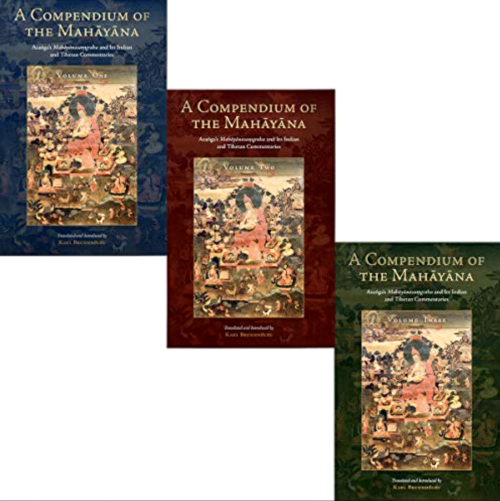
- Also available as an eBook for Apple and Android devices.
- Limited supply.
- The hardcopy book is shipped from the US. International customers may wish to explore local booksellers, Shambala Publications, or Amazon to save on shipping cost.
Translator: Karl Brunnhölzl
Winner of the Khyentse Foundation Prize for Outstanding Translation. The first complete English translation of Asaṅga's Mahāyānasaṃgraha, the most important and comprehensive Indian Yogācāra text, and all its available Indian commentaries. The Mahāyānasaṃgraha, published here with its Indian and Tibetan commentaries in three volumes, presents virtually everything anybody might want to know about the Yogācāra School of mahāyāna Buddhism. It discusses in detail the nature and operation of the eight kinds of consciousness, the often-misunderstood notion of “mind only” (cittamātra), dependent origination, the cultivation of the path and its fruition in terms of the four wisdoms, and the three bodies (kāyas) of a buddha. Volume 1 presents the translation of the Mahāyānasaṃgraha along with a commentary by Vasubandhu. The introduction gives an overview of the text and its Indian and Tibetan commentaries, and explains in detail two crucial elements of the Yogācāra view: the ālaya-consciousness and the afflicted mind (kliṣṭamanas). Volume 2 presents translations of the commentary by Asvabhāva and an anonymous Indian commentary on the first chapter of the text. These translations are supplemented in the endnotes by excerpts from Tibetan commentaries and related passages in other Indian and Chinese Yogācāra works. Volume 3 includes appendices with excerpts from other Indian and Chinese Yogācāra texts and supplementary materials on major Yogācāra topics in the Mahāyānasaṃgraha. -
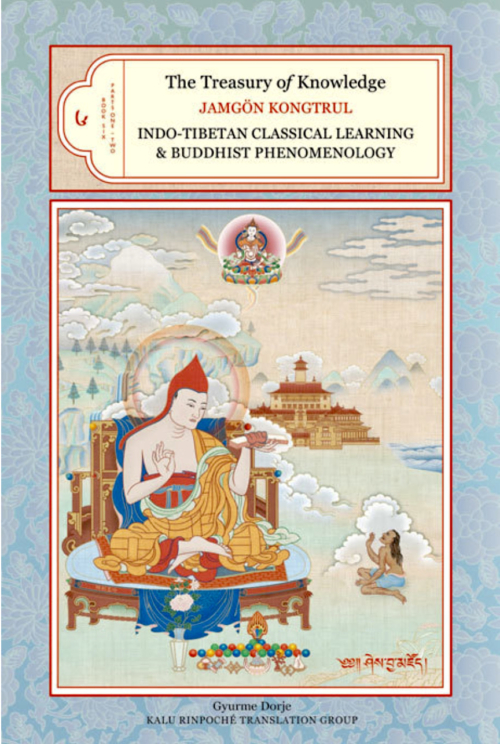
- Also available as an eBook for Apple and Android devices.
- The hardcopy book is shipped from the US. International customers may wish to explore local booksellers, Shambala Publications, or Amazon to save on shipping cost.
Author: Jamgön Kongtrul Lodrö Thayé Translator & Editor: Gyurme Dorje
Jamgön Kongtrul’s encyclopedic Treasury of Knowledge presents a complete account of the major lines of thought and practice that comprise Tibetan Buddhism. Among the ten books that make up this tour de force, Book Six is by far the longest—concisely summarizing the theoretical fields of knowledge to be studied prior to the cultivation of reflection and discriminative awareness. The first two parts of Book Six, contained in this volume, respectively concern Indo-Tibetan classical learning and Buddhist phenomenology. The former analyzes the traditional subjects of phonology and Sanskrit grammar, logic, fine art, and medicine, along with astrology, poetics, prosody, synonymics, and dramaturgy. The principal non-Buddhist philosophical systems of ancient India are then summarized and contrasted with the hierarchical meditative concentrations and formless absorptions through which the "summit of cyclic existence" can genuinely be attained. Part Two examines the phenomenological structures of Abhidharma—the shared inheritance of all Buddhist traditions—from three distinct perspectives, corresponding to the three successive turnings of the doctrinal wheel. -
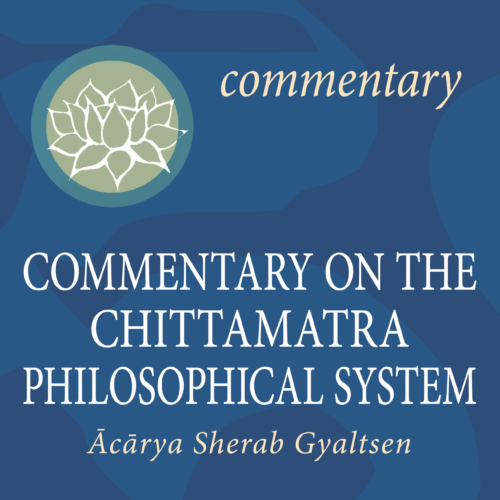
A commentary by Acharya Sherab Gyaltsen
Root verses and commentary on An Exposition Of The Presentation of the Philosophical Systems of the Great Vehicle An Exposition that Reveals the Presentation of the Philosophical Systems of the Chittamatrikas of the Great Vehicle by Dzogchen Ponlop Rinpoche. Translated by Karl Brunnhölzl, Tyler Dewar, and Scott Wellenbach. -
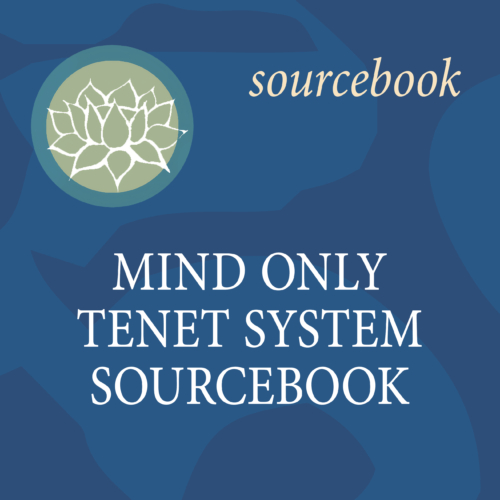 This sourcebook offers a systematic presentation of the Mind Only (Cittamātra) tenet system, one of the principal Mahāyāna philosophical schools. The Mind Only school emphasizes the doctrine that the subjective and objective poles of perception are not different in substance, but mental in nature. Specific topics include discussions on perception, the fundamental notion of “mind only,” the three natures, self-awareness, and the all-base consciousness. Also included is a brief discussion of the paths and the fruition. Selected readings, analytical meditations, study questions, and review charts are included in the sourcebook. Includes root text written by Acharya Lama Tenpa Gyaltsen.
This sourcebook offers a systematic presentation of the Mind Only (Cittamātra) tenet system, one of the principal Mahāyāna philosophical schools. The Mind Only school emphasizes the doctrine that the subjective and objective poles of perception are not different in substance, but mental in nature. Specific topics include discussions on perception, the fundamental notion of “mind only,” the three natures, self-awareness, and the all-base consciousness. Also included is a brief discussion of the paths and the fruition. Selected readings, analytical meditations, study questions, and review charts are included in the sourcebook. Includes root text written by Acharya Lama Tenpa Gyaltsen.
